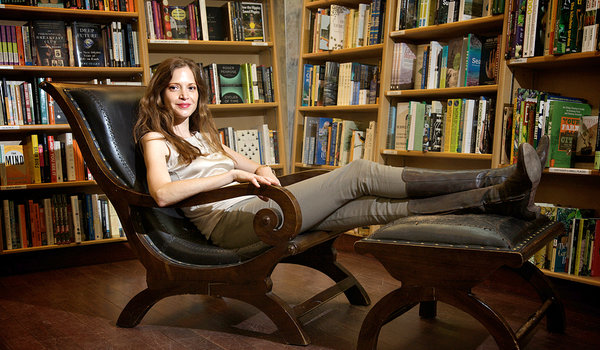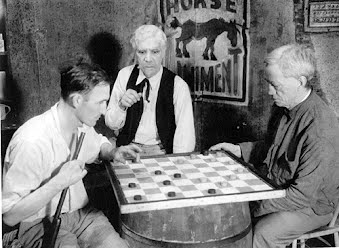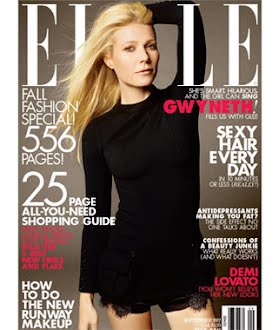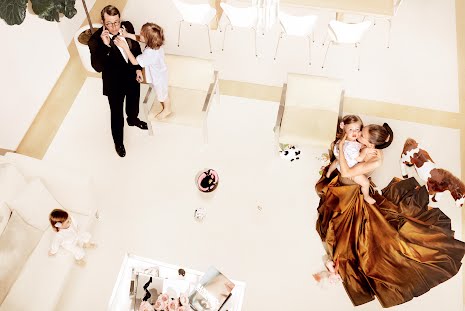Hopeful shopping

Last week the New York Times' Thursday Styles section profiled bookstore owner Sarah McNally, who owns "the determinedly WiFi-free McNally Jackson Books on Prince Street in Nolita." It was a really enjoyable read, and here are a few reasons why:
The machine can cost more than $100,000, a huge investment for an independent bookstore, but it makes sense when the NYT describes it as "Ms. McNally's grand gambit against the e-book pestilence." I also loved this description:
Ms. McNally gazed tenderly at the behemoth as it printed 'Veiled Women,' by Marmaduke Pickinthall (1913) for a customer. "Look," she cooed, as mechanical thingamabobs measured and bound the new book. "It's still warm, like cookies fresh out of the oven."
And the profile is full of little tidbits as evidence. To wit:
She sipped tea, coughing, her thin body shaking. Bad cold? "Technically, I had tuberculosis," she said with a shrug.
I always think of aspirational shopping as purchasing a fancy pair of shoes that don't fit into your lifestyle, a pair of jeans that are too snug, or a luxury car you can't quite afford. But buying books can be similar in that it represents the kind of person you hope to be, knowledge you hope to have in the future. I never thought of it that way until I read this:
"I believe that within every great reader there are multitudes of people," she said... Book buying is aspirational, she added. "They are deeply hopeful purchases."
On the simple life

-- From The New Yorker's really smart profile of Don Culcord, the druggist who owns the only pharmacy in very rural Nucla, Colorado. Ken Jenks, quoted above, is a physician's assistant and the region's main medical expert.
Jenks grew up in Salt Lake City, but he has spent most of his working life in small towns. “Maybe I can describe it this way,” he says. “I like to play chess. I moved to a small town, and nobody played chess there, but one guy challenged me to checkers. I always thought it was kind of a simple game, but I accepted. And he beat me nine or ten games in a row. That’s sort of like living in a small town. It’s a simpler game, but it’s played to a higher level.”
Gwyneth Paltrow on marriage and coincidence

One of the best parts of Gwyneth Paltrow's interview for Elle Magazine's September cover story is where she talks about her parents, who were married for 32 years up until her father's death in 2002:
"I used to say to my dad, 'How did you and mom stay married for all this time?' And he'd say, 'Two things. Number one: You gotta have the same dreams. One person can't be daydreaming about walking down the street in Paris, the other person wants to work in a coal mine. You've gotta want the same stuff.'
At number two, she laughs. "He said, 'We never wanted to get divorced at the same time.'"
On raising city kids

I picked up the August issue of Vogue to read during the WiFi-less flight I took this past weekend (Mental note: I really should subscribe, since now that I think of it I probably buy at least 6 issues per year off the newsstand.)
Anyway, Sarah Jessica Parker is on the cover, and the interview with her is pretty good. Two things I especially loved:
1. In every photo she's still rocking the Manolo Blahniks-- the
defining brand for the Carrie Bradshaw era -- even now that the trendy
set has mostly jumped ship to Christian Louboutin. Now that's dancing with the one that brung ya.
2. Her reasoning for deciding to raise her family in New York City, despite the fact that she has three young children:
2. Her reasoning for deciding to raise her family in New York City, despite the fact that she has three young children:
"You do start to understand the behind-the-gate mentality, the getting in the car in your driveway... but I can't imagine living in seclusion. We flirted with it. We went outside the city and troubled all these realtors and stood in these homes and fantasized, and then I kept picturing nine o'clock at night and" -- she breaks into mime drumming her fingers on her crossed knees and staring into the middle distance.
"The beautiful thing about New York is, you have to expose yourself to other people the minute you step outside the door. There is no choice. And I love that.